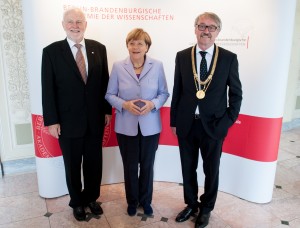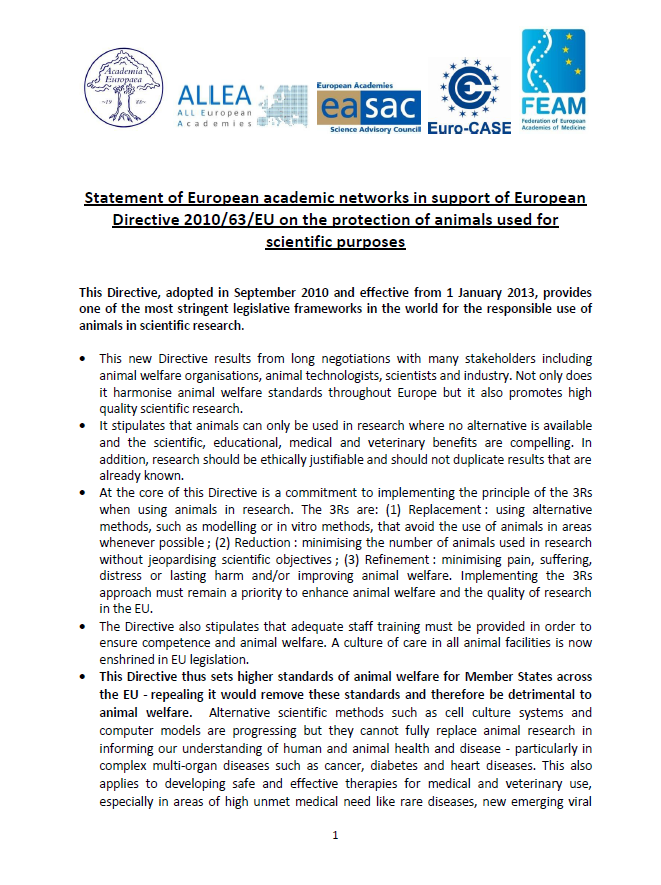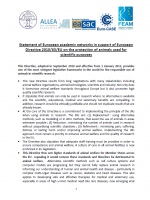German Chancellor Angela Merkel reaffirms role of Academies and importance of state support for science at ceremonial address for ALLEA President

From left to right: Martin Grötschel, designated President of the Berlin-Brandenburg Academy of Sciences and Humanities; Angela Merkel,German Chancellor; Günter Stock, ALLEA President Photo: BBAW, news aktuell, Oliver Mehlis
In her ceremonial address on 6 June 2015 in the context of the “Leibniztag” festivities organised by the Berlin-Brandenburg Academy of Sciences and Humanities, German Chancellor Angela Merkel emphasised the importance of fostering strong national science programmes. As part of her address, she honoured ALLEA President Günter Stock, whose ten years as the President of the Berlin-Brandenburg Academy have now concluded.
Addressing an audience of nearly 1,600 guests in the neoclassical Konzerthaus Berlin, Chancellor Merkel spoke about the relationship between the political world and that of science while reaffirming her government’s goal to reach the 3% GDP investment in research and development. She emphasised the need to continue to invest in all areas of science, especially in view of international competitiveness, promoting excellence in science, and providing quality opportunities for early career researchers.
Chancellor Merkel furthermore underlined the significance of quality education, science and innovation systems for society as a whole. They would determine how far society can come towards providing technology, services, and intellectual answers that are in demand today and directly influence prosperity levels, standards of living, and progress worldwide.
Moreover, Chancellor Merkel attributed the role of functioning as a bridge for the cooperation between nations and regions to science. She noted that in the science landscape, international cooperation has long been practically self-evident and that this cooperation serves as an example for policymakers that they can best tackle common challenges through a united effort.
Honouring ALLEA President Günter Stock for his now completed ten years in office as President of the Berlin-Brandenburg Academy, Chancellor Merkel specifically highlighted his role as the President of ALLEA, the network of Academies at the European level. On the functions of Academies, the Chancellor noted that Academies contribute towards leading innovative national and international projects, bring science to civil society, represent the voices of scientists towards their governments, and help develop new interdisciplinary approaches and projects, thereby reaffirming their indispensable role for science and society.



